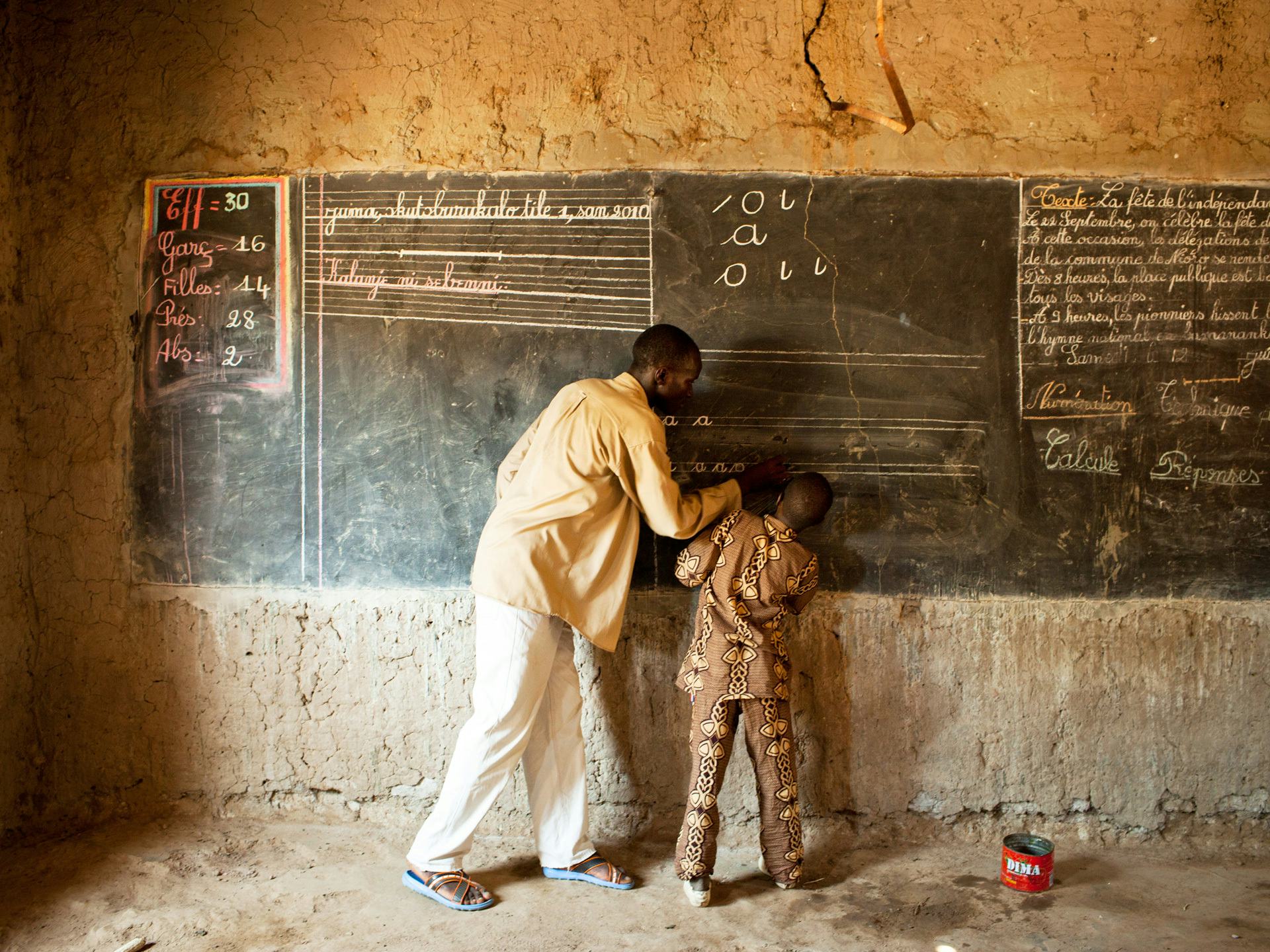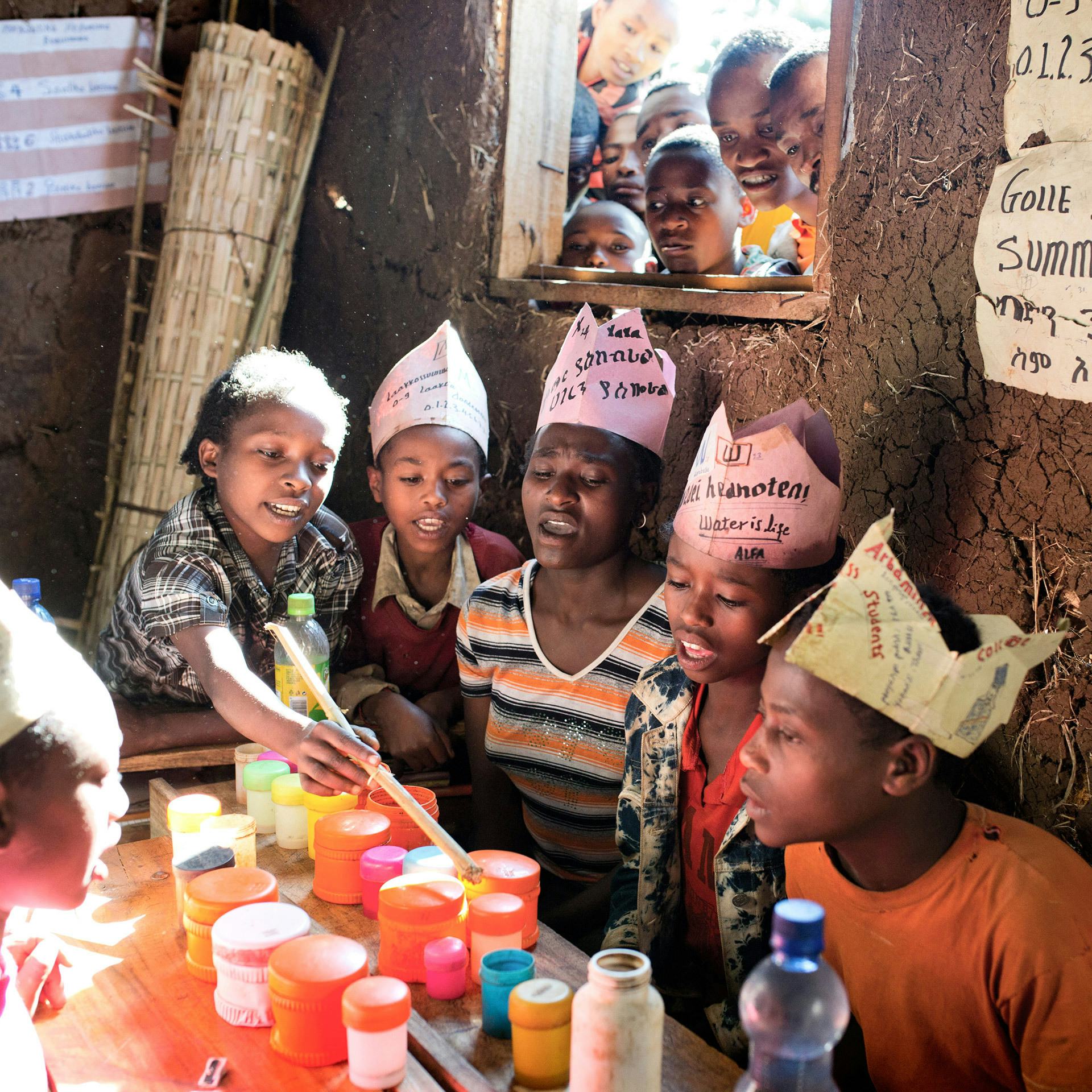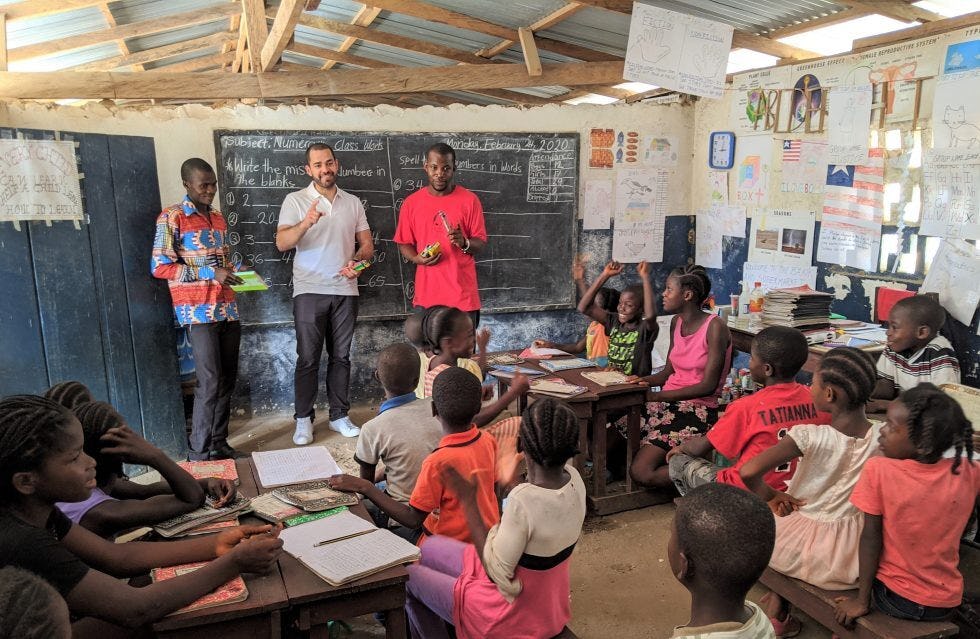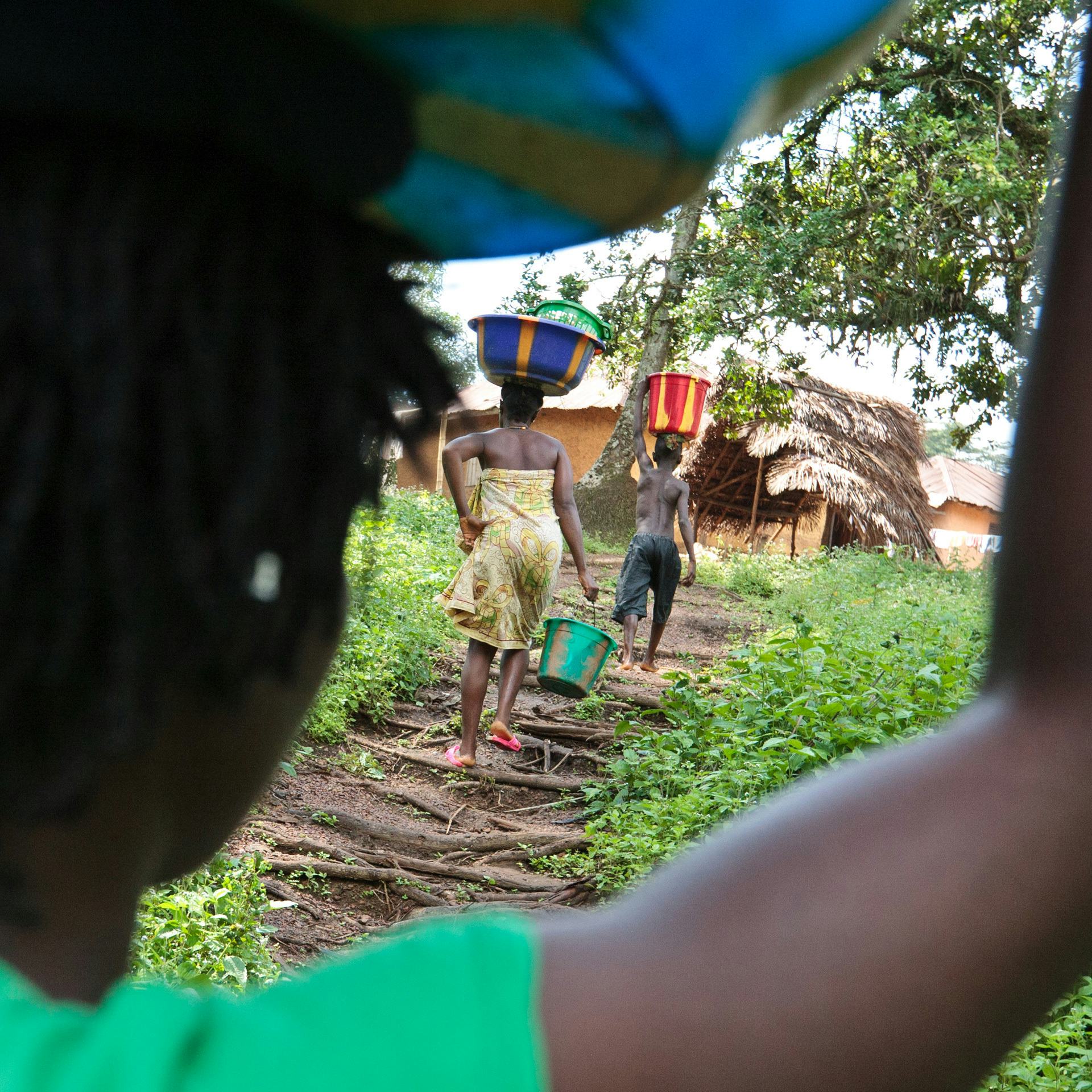The Accelerated Learning Programmes ran between 2007 and 2016 in West Africa and Ethiopia. The programmes were designed to help give students who had missed out on academic education the opportunity to transition back into mainstream systems of learning.

The Accelerated Learning Programmes ran between 2007 and 2016 in West Africa and Ethiopia. The programmes were designed to help give students who had missed out on academic education the opportunity to transition back into mainstream systems of learning.

It is estimated that there are over 258 million school-age children who do not know how to read or write. Many of them have never attended and have little hope of entering the school system in the future, forcing them to fall further behind.
Financial constraints, ignorance of the value of education, long distances to public schools, and the need for assistance with household chores are just some of the many complicated reasons parents keep their children out of school.
At Legatum, we value the power of learning and believe every child should have the opportunity to do so. We recognise that a good education can be the start of a good life; one filled not only with material success and career opportunities, but one of resilience, happiness and prosperity.
In 2007, Legatum launched its first accelerated learning initiative in West Africa, to reach over 32,000 children. In collaboration with local non-profit organisations, including the Strømme Foundation, the programme was implemented in rural villages in Mali, Burkina Faso and Niger. The programme provided essential classroom equipment and trained local teachers to deliver the curriculum, spending ten months in each village. By the end of year three, the programme had exceeded its target, providing 34,000 children with basic education and training over 500 teachers in the accelerated learning curriculum.
The model was then moved to Ethiopia, to test for transportability and scalability and was adapted to incorporate a third language. Over four years, 46,000 children were given access to an education.
In the implementation phase, we recognised that a major barrier to children receiving an education in West Africa and Ethiopia was their households' economic welfare. Children went to work rather than to school. In response, we ran self-help savings groups for the mothers of students. In these groups, they learnt how to save, generate funds, and manage business and credit. We believe this financial education is vital to the sustainability of our programmes, and its benefits reach far beyond just keeping children in classrooms.
Children educated through the accelerated learning programme are proven to perform markedly better than their peers in government-funded primary schools. The children’s performance is attributed to the programme’s active learning approach, which teaches children how to acquire knowledge and instils in them the joy of learning.
The initiatives also demonstrated the power of community support and engagement. The commitment of parents and community members played a major role in the success of the initiatives. It confirmed our view that real development needs to be rooted in the community.
We also found that we could significantly affect change by concurrently running the mothers’ self-help saving groups. These programmes saw the creation of small businesses that enabled families to put their children back into school and relieve some of their financial stress.
After much success, we decided the programme was ready to be scaled, and we launched the Luminos Fund in 2015.

The Luminos Fund
The Luminos Fund gives children excluded from school due to poverty, conflict or discrimination, a second chance for a mainstream education

Dubai International Financial Centre
Dubai, United Arab Emirates







